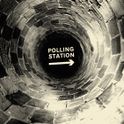The law no longer just criminalises anti-social behaviour. It now criminalises normal social behaviour. Regulations imposed this spring at a stroke removed freedom of movement, freedom of assembly and freedom of worship. The usual liberties of every citizen are now potential criminal offences. This is the most fundamental of shifts, and it has happened without proper parliamentary scrutiny: these sweeping restrictions were imposed in England by ministerial fiat in March 2020 and had still not been approved by MPs a month later.
The reason, of course, is the current coronavirus emergency requires social distancing to be enforced by the police having coercive powers. But it is an extraordinary situation, and perhaps one where the implications are still not recognised.
Does it matter? Some will shrug, saying there is a national crisis, and that anything goes by all means necessary, even the creation of the criminal offence with the widest scope in national history. Irksome dissent can be silenced with a frowning “don’t you know there is a virus on?” There will be many reading this article, as there are many in society, who would say that such restrictions are a price worth paying if they can save lives, and that any legalities are mere niceties that do not matter.
These people have a point. The legal and constitutional basis of the lockdown is less important than the lives that may be saved. And the very reason why we have emergency legislation is for, well, emergencies, and this is one of them. Yet this should not mean that anything goes, and that grand questions of legitimacy and mundane issues of simple legal efficacy should be ignored. They may be less urgent than the lives at risk, but constitutional and legal propriety still matters.
The UK is a parliamentary democracy and must still be one when these days pass. Emergencies can be abused by knaves, and emergency legislation can turn out to have unexpected consequences. The Enabling Act that followed the Reichstag fire in 1933 is an extreme example of bad things that happen with law when attention is diverted and scrutiny extinguished.
No medical or other crisis should be reason for the executive to be given absolute power, including to potentially criminalise the population at large.
Of course, the regulations provide for a defence of “reasonable excuse.” But this is problematic. It is not for you but for an emanation of the state—a police officer or a court—to decide whether you are reasonably excused. The examples of excuses listed in the law are so vague that neither constable nor citizen really knows where they are. There have been several publicised examples of the police either not understanding their powers or being excessive in implementing them, from wrongful arrests to invading private property and personal spaces.
[su_pullquote align="right"]“Irksome dissent can be silenced with a frowning ‘don’t you know there is a virus on?'"[/su_pullquote]
In this confusing and intimidating environment, many vulnerable people who would have a valid and lawful reason to leave where they live are frightened that they will become criminals should they exercise the rights they do in fact have. Those in abusive households are ending up under house arrest with their abusers.The new restrictions have converted the UK into the sort of locked-down state that would be the dream of any modern tyrant. And this is in addition to the government’s immense powers of surveillance and interception of which most people only have a dim awareness.
This has been accepted on the nod, not only politically but constitutionally. During Brexit, in contrast, the Supreme Court twice had to decide cases about the executive seeking to exercise power at the expense of parliament and in two rousing judgments upheld the principle of parliamentary supremacy over ministers. But this ministerial decision to extinguish fundamental rights—even on a temporary basis—is unlikely to get the quick anxious scrutiny of any court, let alone the Supreme Court.
This lockdown, and the law enforcing it, is required by the pandemic. Social distancing is needed to minimise or eliminate transmissions of the virus, and such distancing needs to be enforced by some means, and the criminal law and the police force are the most convenient means available. Banning things, after all, is something the UK state finds easy.
But strict public order laws are not enough: the disease will not be defeated by legal prohibitions alone. If bans by themselves were enough then we could just ban the virus. The UK state also needs to do other things that it rarely does well: practical policy making and decent resource allocation. Procuring and distributing ventilators and personal protective equipment and putting in place viable testing regimes and tracing programmes.
General prohibitions can have a role in dealing with a medical emergency, but rushing into force wide prohibitions also carries serious risks. Already the current restrictions have had to be changed with further ministerial regulations, with amendments disguised as “clarifications.”
But there is a wider predicament. Any emergency legislation will always get the benefit of the doubt in the short term, when the cries of “something must be done” are at their loudest. When those cries begin to fade, however, and the legal restrictions become of more immediate concern to families and businesses, legitimacy and proportionality will also begin to matter more. And in the longer term, the laws will need to be robust enough to avoid not only injustices, but also to provide for those who will seek and often deserve compensation or other remedies.
Dealing with this emergency requires the purchase of society for its measures and parliamentary scrutiny and approval should not be discarded. We may need, temporarily, to convert all social behaviour into anti-social behaviour, but we should be careful not also to convert our politics into anti-politics.













